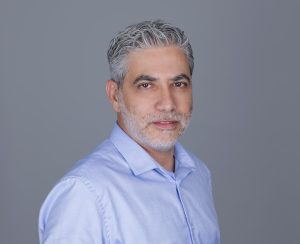On May 7, Israel will mark Teacher Appreciation Day- a day dedicated to honoring those who shape future generations and hold the key to a knowledgeable, curious, and ethical society. But beyond the well-deserved greetings and celebrations, this is a moment to pause and ask:
How has the status of teachers changed over the years?
And what is the real role of the educator in a world that is constantly shifting?
In the early decades of Israel’s education system, teachers were seen as near-absolute authorities. Their words were considered truth, their status deeply respected, and the classroom was their exclusive domain. Knowledge was a rare and treasured resource, and the teacher was its guardian.
But times have changed.
In an era of instant access to information– from social media to artificial intelligence– the traditional image of the teacher as the sole bearer of knowledge is continuously challenged.
The information and technology revolution has redefined the role of the teacher: from a transmitter of knowledge to a facilitator, guide, mentor, and source of inspiration.
Today’s teacher is not the only provider of information, but the one who teaches students how to navigate a world flooded with it– to filter, evaluate, interpret, and think critically.
This new reality requires a dramatically broader and more complex skillset than ever before:
Technological fluency, the ability to foster independent thinking, and the emotional intelligence to manage sensitive relationships with students, parents, and the wider community.
In parallel to this shift in professional demands, the teacher’s social status has undergone a major transformation. The traditional image of the teacher as an unquestioned authority has given way to a more nuanced, and often more fragile, triangle of teacher–parent–student relationships.
In the past, parents and teachers were largely seen as partners, a unified front working together in the student’s best interest. If we were to visualize this relationship as a diagram, it would be a one-directional arrow: parents and teacher delivering knowledge, the student receiving it.
But today, when teachers are no longer the sole guardians of knowledge, the model has become a triangle — with each party occupying one corner: teacher, parent, student.
This reshaping of roles has added new layers of complexity to the teacher’s authority, creating new fronts of engagement where teachers must also defend their own image and professionalism.
And this is only part of the challenge.
Teachers in Israel in 2025 face:
Highly diverse classrooms that demand personalized learning, Increased technological immersion in students’ lives, The erosion of traditional authority, Mounting pressure from parents and institutions, Inadequate salaries that fail to reflect the weight of the role And above all, the expectation to be not only educators, but mentors, counselors, psychologists, friends, and at times even parental figures.
And yet, in this very moment– the role of the teacher has never been more critical.
In a world where information is just a click away, the true value of the teacher lies in their ability to spark curiosity, instill values, and nurture independent thinking.
The teacher is the one who identifies the spark within each student and kindles the flame that transforms them into lifelong learners, creators, and thinkers.
Education is the key to both personal and national success.
Countries that recognize this, and invest in their teachers — through quality training, fair compensation, and genuine respect — are the ones leading in innovation, equity, and societal development.
That’s why we must rethink the teacher’s role and status– not just on Teacher Appreciation Day, but every day.
It’s time to give teachers what they truly deserve:
Dignified working conditions, professional autonomy, and societal recognition.
Only then will teaching attract the most talented, passionate, and innovative individuals — those capable of driving education forward into the future.
Yes, the bell really does ring for us.
Not only for teachers– but for all of us.
It is a call to remember the immense importance of quality education and the pivotal role teachers play in shaping our collective destiny.
This Teacher Appreciation Day lets go beyond kind words and symbolic gestures.
Let us commit to real action, to empowering our teachers, and restoring their rightful status– for the sake of future generations and for the future of the State of Israel.



